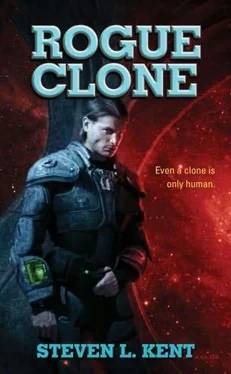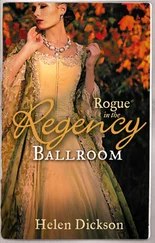Steven Kent - Rogue Clone
Здесь есть возможность читать онлайн «Steven Kent - Rogue Clone» весь текст электронной книги совершенно бесплатно (целиком полную версию без сокращений). В некоторых случаях можно слушать аудио, скачать через торрент в формате fb2 и присутствует краткое содержание. Жанр: Боевая фантастика, на английском языке. Описание произведения, (предисловие) а так же отзывы посетителей доступны на портале библиотеки ЛибКат.
- Название:Rogue Clone
- Автор:
- Жанр:
- Год:неизвестен
- ISBN:нет данных
- Рейтинг книги:3 / 5. Голосов: 1
-
Избранное:Добавить в избранное
- Отзывы:
-
Ваша оценка:
- 60
- 1
- 2
- 3
- 4
- 5
Rogue Clone: краткое содержание, описание и аннотация
Предлагаем к чтению аннотацию, описание, краткое содержание или предисловие (зависит от того, что написал сам автор книги «Rogue Clone»). Если вы не нашли необходимую информацию о книге — напишите в комментариях, мы постараемся отыскать её.
Rogue Clone — читать онлайн бесплатно полную книгу (весь текст) целиком
Ниже представлен текст книги, разбитый по страницам. Система сохранения места последней прочитанной страницы, позволяет с удобством читать онлайн бесплатно книгу «Rogue Clone», без необходимости каждый раз заново искать на чём Вы остановились. Поставьте закладку, и сможете в любой момент перейти на страницу, на которой закончили чтение.
Интервал:
Закладка:
A few minutes later, the sergeant climbed into his jeep. He slammed the door behind himself and sped away.
“I wish somebody would stomp that specker,” one of the soldiers said.
Somebody was about to.
Moving in absolute silence, not kicking a can or brushing a box, I walked through the alley. I did not think those soldiers would notice a marching band parading by with that arc light shining in their eyes, but I did not take any chances. A stealth jeep filled with Marines met me at the end of the alleyway. I climbed in.
“I don’t know where you marked the target that second time, but it’s a good thing you did,” Phillips said. “This guy drives like a frigging maniac. That second mark is a lot clearer.”
Our driver watched the road through a night-for-day lens in the windshield. I did not envy him that task. I had used similar technology in my old combat armor. Night-for-day lenses, with their monochrome displays, just about annihilated your depth perception.
A radar panel on the dashboard showed our position, the sergeant’s position, and the position of our second stealth jeep, along with any nearby Army vehicles. Sergeant Target was on his way to the next barricade, three miles away. His car swerved severely as he drove. Our jeeps, driving on parallel roads, flanked him on either side.
“What’s the matter with him?” Phillips asked.
“Probably drinking and driving,” I said.
“Was he drunk?” Phillips asked.
“He’s a sergeant,” I said. “You can’t tell without a blood test.”
This was a lucky break. A shitfaced sergeant might crash his car. He might stop for a drink, be found by looters, and be stripped from his car. It fit perfectly into our plans. He had given us an alibi, assuming we needed one.
Looking at the map, I saw that our sergeant was still one mile from the next barricade. “Last chance to back out,” I said to Colonel Phillips.
Phillips picked up the microphone and said, “Take him.”
Our driver accelerated. Looking at the map, I saw that the driver in the other jeep had also picked up some speed. We streaked ahead for two blocks and gained a good lead, then swerved around the next corner and planted ourselves in the middle of the road. Using a computer to aim our searchlights on the sergeant, we leapt from the car and drew our weapons.
Our second jeep pulled in behind the sergeant. Once our lights went on, the other driver flashed his, too. And now the brain-dead sergeant, Mr. A.L.E.R.T, did exactly what we hoped he would do. Instead of hunkering in his jeep and calling in his situation, he grabbed his weapon and stepped on to the street. The searchlights blinded him, and he stood with his arms over his eyes too dumb to move.
I approached from the front. The searchlight shone over my shoulder.
“Who are you?” the sergeant muttered.
“Are you drunk, sergeant?” I asked as my right fist slammed into his jaw, dropping him to the street. He fell and did not stir. The drivers in the stealth jeeps cut their searchlights as I knelt beside the fallen Army man and stripped him down to his underwear. I took his uniform, wallet, ID and dog tags. These articles I placed on the hood of his car. Then I stripped my clothes off and handed them to Phillips.
“Damn, Harris. You didn’t need to do that,” Phillips said.
“The last thing he heard was drunk ,” I said.
“So?” Phillips asked.
“The word will stay fresh in his subconscious. It’ll be the first thing he thinks of when he wakes up,” I said.
“Does it work that way?” Phillips asked.
“It does with me,” I said as I buttoned his shirt over my chest. That was a lie. I had never gotten so drunk that I passed out.
“Good thinking,” Phillips said.
The sergeant was a clone, of course …brown hair, brown eyes. He was shorter than me, and broader around the neck and the chest. He also had a gut. The sleeves of his fatigues ended well shy of my wrists, but I didn’t worry about it. I was not headed to Fort Clinton for a fashion show. The soldiers manning that base would be too busy to notice my sleeves.
As for the good sergeant, he was on his way to the brig at Fort Washington. There he would remain in a cell until he woke up. He would tell them that he was a soldier in the Unified Authority Army. They would tell him that they found him passed out and naked on the street. Thanks to the bottle he carried in his jeep, the story would be an easy sell. His blood alcohol would be legitimately high. If everything went as expected, Phillips would be in the clear. Had he known what we were doing, Colonel Batt Wingate would have been worried.
I nodded to Phillips and climbed into the Army jeep. The air inside the car smelled of beer and flatulence. Using the dome light in the roof, I examined my dog tags for a name—First Sergeant Mark Hopkins. Then I rolled down the window and started up the engine. I was about to pull forward when one of Phillips’s men waved for me to stop.
“You might want this,” he said, handing me the sergeant’s M27. I thanked the man and left. Rather than follow Sergeant Hopkins’s designated course, which would have taken me through three more checkpoints, I found a circuitous route that took me through alleys until I passed all but one final guard station. There I would need to make an appearance.
The jeep barely fit through a few of the tighter alleys. Dumpsters, trash cans, and abandoned cars choked some of the back ways. I saw looters, too—mostly harmless men, scurrying like rats through the shadows, trying to hide by diving into buildings when my headlights turned in their direction. These men traveled alone or in teams of two, mostly. Had I run into a mob, I suspect they would have come after me.
I left the cover of the alleys before entering the final checkpoint. The soldiers guarding that checkpoint would expect an Army sergeant to come up the street. So I pulled onto good old Main Street, Safe Harbor, a six-lane thoroughfare leading to an endless suspension bridge that spanned a great river.
The checkpoint looked like a wall of light spanning the front entrance to the bridge. Soldiers milled around the titanium barricade which stretched the width of the road. There must have been an officer in charge at this post. The soldiers were far more alert than the ones at the other barricades I had seen. They held their guns at the ready. Men sat in the machine-gun nests on either side of the bridge. Soldiers sat behind the wheels of the jeeps and all-terrain vehicles on the edges of the post.
None of this would matter as long as I did not do anything stupid. I slowed my jeep and coasted up to the barricade before coming to a stop. Somebody flashed a spotlight on me; the glare through the windshield was blinding. I lifted a hand to block the glare as I opened my door.
“May I see your identification?” a soldier asked from somewhere within the light.
I felt through my pockets and produced Sergeant Hopkins’s ID.
Hopkins and I were different models of clones, but we were both clones. We both had brown hair, brown eyes, and similar facial features. I was an elongated version of Hopkins, a more than reasonable facsimile with this blinding spotlight bleaching my skin and features.
“Could you cut the light?” I asked. It seemed like something a dumb-ass sergeant might ask.
The soldier handed back my ID. I heard the grating yawn of metal scraping across a concrete surface as the barricade slid open.
“You’re clear,” the soldier said.
So I drove across the bridge, watching the island of light diminish in my rearview mirror. The bridge stretched for more than one mile, the yard-wide cables that supported it forming an arc that reminded me of the spokes of a bicycle tire. A blanket of thick clouds stretched across the sky. Rain so fine that it felt like mist filled the air. An enormous mile-wide river rushed beneath the bridge, but it was so far below me that I could barely hear the hiss of its currents. And covering everything was the inky blackness of night.
Читать дальшеИнтервал:
Закладка:
Похожие книги на «Rogue Clone»
Представляем Вашему вниманию похожие книги на «Rogue Clone» списком для выбора. Мы отобрали схожую по названию и смыслу литературу в надежде предоставить читателям больше вариантов отыскать новые, интересные, ещё непрочитанные произведения.
Обсуждение, отзывы о книге «Rogue Clone» и просто собственные мнения читателей. Оставьте ваши комментарии, напишите, что Вы думаете о произведении, его смысле или главных героях. Укажите что конкретно понравилось, а что нет, и почему Вы так считаете.












